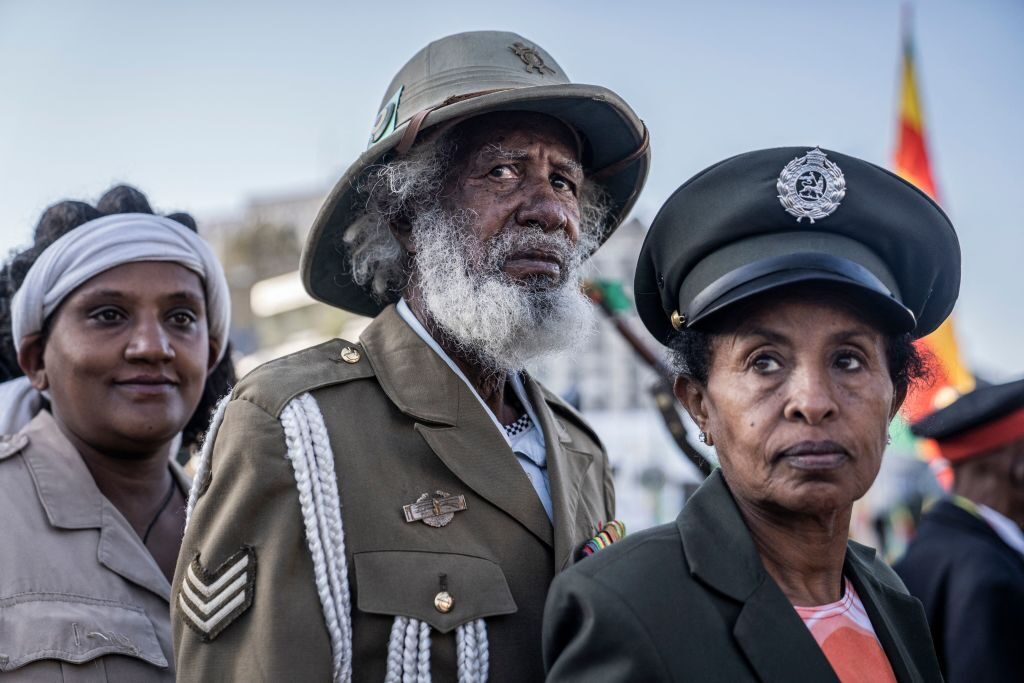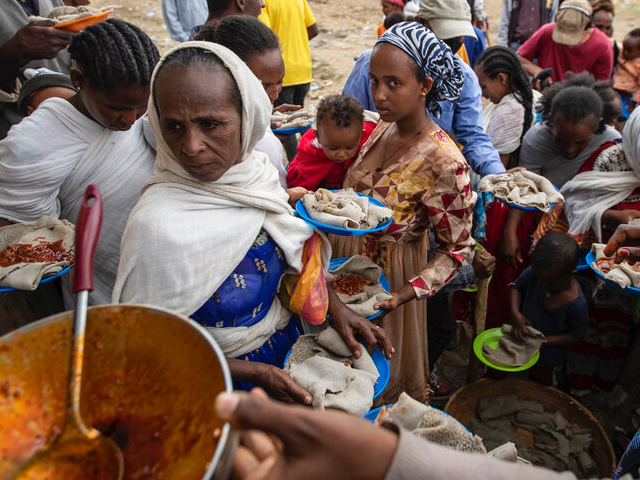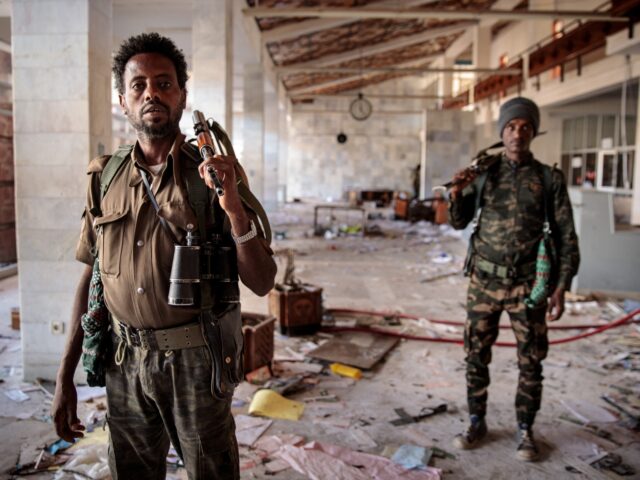The New York Times (NYT) reported on Saturday the Biden administration secretly sent a team of diplomats to the Tigray region of Ethiopia last month in an unsuccessful attempt to negotiate a halt to a devastating civil war that threatens to destabilize the entire Horn of Africa.
The war only became worse after this attempt at (literally) under-the-radar diplomacy.
According to the NYT, the U.S. military aircraft carrying the diplomats entered Ethiopian airspace while “flying low and taking measures to avoid detection.”
All parties to the brutal civil war, which includes invading forces from neighboring Eritrea as well as several tribal militias, were told the plane carried U.S. envoy to Ethiopia Mike Hammer “as an assurance it would not be shot down.”
Three previous clandestine meetings were arranged by the U.S. government in Djibouti and the Seychelles, beginning in March. None of them have been disclosed to the public until now.
The NYT said its Tigrayan and Western sources came forward because they were frustrated by the poor results of this secretive diplomacy, which they felt was ineffective because it put no public pressure on either the Ethiopian government or Tigrayan insurgents to make a lasting peace deal.

Descendant of War veterans stand on guard during the celebration of the 81st patriots’ day at Meyazia 27 square in Addis Ababa, Ethiopia, on May 5, 2022. Patriots’ Day (Arbegnoch Wen in Amharic) is a national holiday that commemorates the end of the Italian occupation. On this day in 1941 the Italian control ended when Emperor Haile Selassie entered Addis Ababa. (AMANUEL SILESHI/AFP via Getty)
The secret U.S.-brokered March meeting in Seychelles between Tigrayan and Ethiopian federal military leaders, for example, produced a “humanitarian truce” that allowed some aid to reach Tigrayan civilians – but it wound up giving both sides time to rearm and reposition their forces for renewed fighting:
The slide back to war on Aug. 24 prompted criticism from experts who say the Biden administration failed to apply enough pressure to force the warring groups to substantive peace talks.
“The diplomacy is clearly not working,” said Cameron Hudson, a former State Department official now affiliated with the Center for Strategic and International Studies. “There’s a lot of effort but they are not achieving anything. So we have to question if we’re using the right tools.”
Hudson said it was “delusional” for the Biden administration to continue treating Abiy like a peace-loving statesman who only needs a few gentle nudges to remember he is a Nobel peace laureate. The Biden team has taken pains to avoid criticizing or sanctioning Abiy too harshly, apparently because it hopes he can be rehabilitated into a reliable Western ally.
Abiy is taking this reticence as permission to fight dirty, bringing in Eritrean forces known for their deep hostility to Tigrayans to handle some of the most brutal work.
Abiy has missed every opportunity to conclude hostilities, his delegates to the secret talks brokered by the U.S. are never empowered to make any significant decisions on his behalf, and his administration consistently refers to the Tigrayans as criminals and traitors who must be subdued. U.N. human rights investigators reported in September that Abiy’s forces are using rape and deliberate starvation as weapons.
The Ethiopian civil war began in late 2020 when the Tigrayan People’s Liberation Front (TPLF), a once-dominant Marxist political party and armed militia group, seized a federal military base located in the Tigray region.
Prime Minister Ahmed Abiy, who received the Nobel Peace Prize just a year earlier for ending Ethiopia’s long border war with Eritrea, responded with a military action that rapidly escalated in size and brutality on all sides.
Other tribes and armed militias were drawn into the conflict, as was Eritrea, which intervened to support Abiy and his government. Allegations of war crimes and civilian atrocities flew against every combatant.

Displaced Tigrayans queue to receive food donated by local residents at a reception center for the internally displaced in Mekele, in the Tigray region of northern Ethiopia on May 9, 2021. (AP Photo/Ben Curtis, File)
Fighting surged quickly in scope and intensity over the past few weeks, as previous cease-fire arrangements collapsed. The NYT and its sources claimed the Ethiopian civil war has intensified more quickly than many outside observers realize and is on the verge of becoming a major regional conflict that drags in more neighboring countries besides Eritrea.
Sudan, for example, is more involved than generally acknowledged:
Sudan has been a “conduit” for flights carrying arms to Tigray, Weber said in her confidential briefing. In May, about 650 ethnic Tigrayans, on U.N. peacekeeping duty in Sudan, deserted the Ethiopian army and sought asylum, said two U.N. officials in Sudan who spoke anonymously because of the sensitivity of the situation. By August, about 400 of those peacekeepers had vanished, the officials said, mostly into Tigray to fight alongside refugees who had been recruited from camps along the border.
One of the factors driving the Ethiopian escalation is that every party is enraged by the abuse it has suffered, and all are afraid to be captured by their vicious enemies or lay down their arms to secure peace. Critics of the Biden administration’s approach said the secrecy of the peace process is exacerbating these fears.
On Monday, the TPLF said the Eritrean military has launched an “extensive offensive” against three Tigrayan towns. The TPLF told residents of these towns to “further intensify their campaign of self-defense.”
“We are witnessing the heaviest fighting since the war restarted. Many civilians were killed, and major buildings and infrastructure destroyed, mainly by heavy weapons fired from the Eritrean side,” a humanitarian aid worker in one of the targeted towns told the Associated Press.

COMMENTS
Please let us know if you're having issues with commenting.